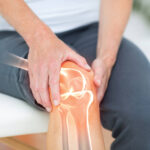The world of men’s sexual health is rife with myths, half-truths, and outright misconceptions. From societal expectations to pop culture, many factors contribute to the spread of misinformation about the penis and its functionalities. These myths can influence not just personal perceptions but also men’s health decisions. Dispelling these myths with science-based evidence is essential for promoting a healthier, more informed understanding of male sexuality.
1. Myth: Size is the Ultimate Indicator of Masculinity and Satisfaction:
Throughout history, penis size has been hyperbolized as the ultimate symbol of masculinity and prowess. However, scientific studies suggest that there is much more to sexual satisfaction than mere size. Emotional connection, communication, and mutual respect play substantial roles in ensuring a satisfying intimate relationship. Moreover, self-worth and masculinity encompass a wide range of attributes beyond physical appearance. It’s crucial to foster a holistic understanding of oneself rather than fixating on a single aspect.
2. Myth: Erectile Dysfunction is Purely a Psychological Issue:
While psychological factors can undoubtedly influence erectile function, attributing erectile dysfunction (ED) solely to psychological causes is an oversimplification. Numerous physical conditions, such as heart disease, diabetes, hormonal imbalances, venous leakage or even certain medications, can contribute to ED. It’s essential to approach ED as a multifaceted issue, seeking comprehensive medical assessment and understanding its potential underlying causes.
3. Myth: Frequent Masturbation is Harmful and Leads to Infertility:
This is a myth that has been perpetuated across cultures for ages. Masturbation is a natural and normal part of human sexuality. In moderation, it has been shown to have several health benefits, such as reduced stress, better sleep, and improved concentration. Furthermore, there’s no scientific evidence to suggest that regular masturbation leads to infertility. In fact, regular ejaculation can promote prostate health. However, like anything, balance is key, and compulsive behaviors can indicate underlying issues that may need to be addressed.
4. Myth: Circumcision Impacts Sexual Pleasure Significantly:
Circumcision, the surgical removal of the foreskin, is practiced across various cultures and religions worldwide. One persistent myth is that circumcised men experience significantly less sexual pleasure. However, scientific studies on this topic present a mixed picture. Some studies suggest a minor reduction in sensitivity, while others indicate no noticeable difference in pleasure between circumcised and uncircumcised men. Personal experiences vary widely, making it important to remember that pleasure is subjective and influenced by myriad factors, not just the presence or absence of foreskin.
5. Myth: The Penis Must Be Erect for Sexual Pleasure or Orgasm:
There’s a prevailing notion that an erect penis is the sole indicator of arousal or the ability to experience pleasure. In truth, the penis is a complex organ with a dense network of nerve endings. Men can derive pleasure from various types of stimulation, not just those that lead to an erection. Furthermore, it’s possible (though less common) for some men to achieve orgasm without a full erection. Associating virility and manhood exclusively with the ability to maintain an erection oversimplifies the diverse range of male sexual experiences.
Conclusion:
The realm of men’s sexual health, filled with misconceptions, often sees myths accepted as truths. These misconceptions can impact self-esteem, relationships, and even health decisions. It’s crucial for men to seek evidence-based information, fostering a more accurate and holistic understanding of their bodies. By debunking these myths, we take a step toward more open conversations, promoting well-being and confidence in the vast and varied landscape of male sexuality.








